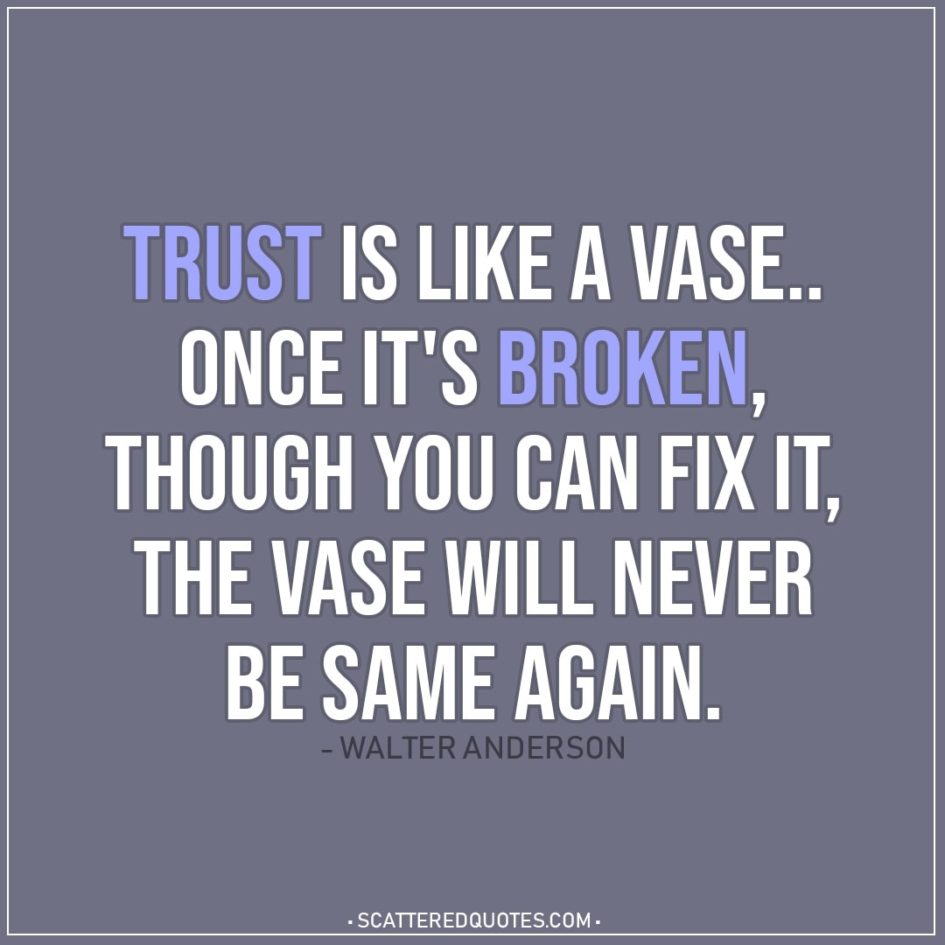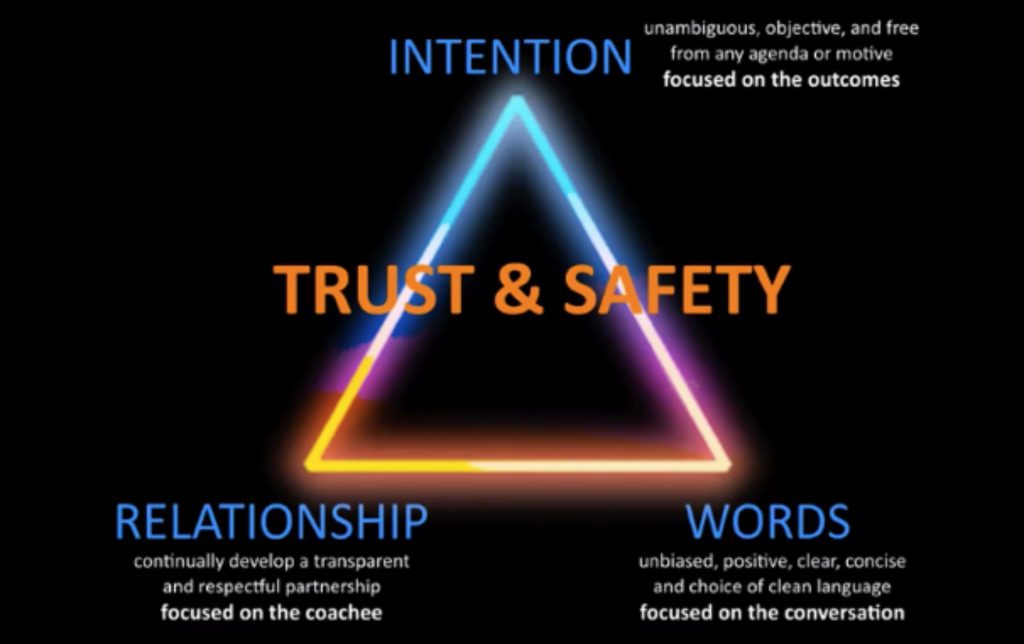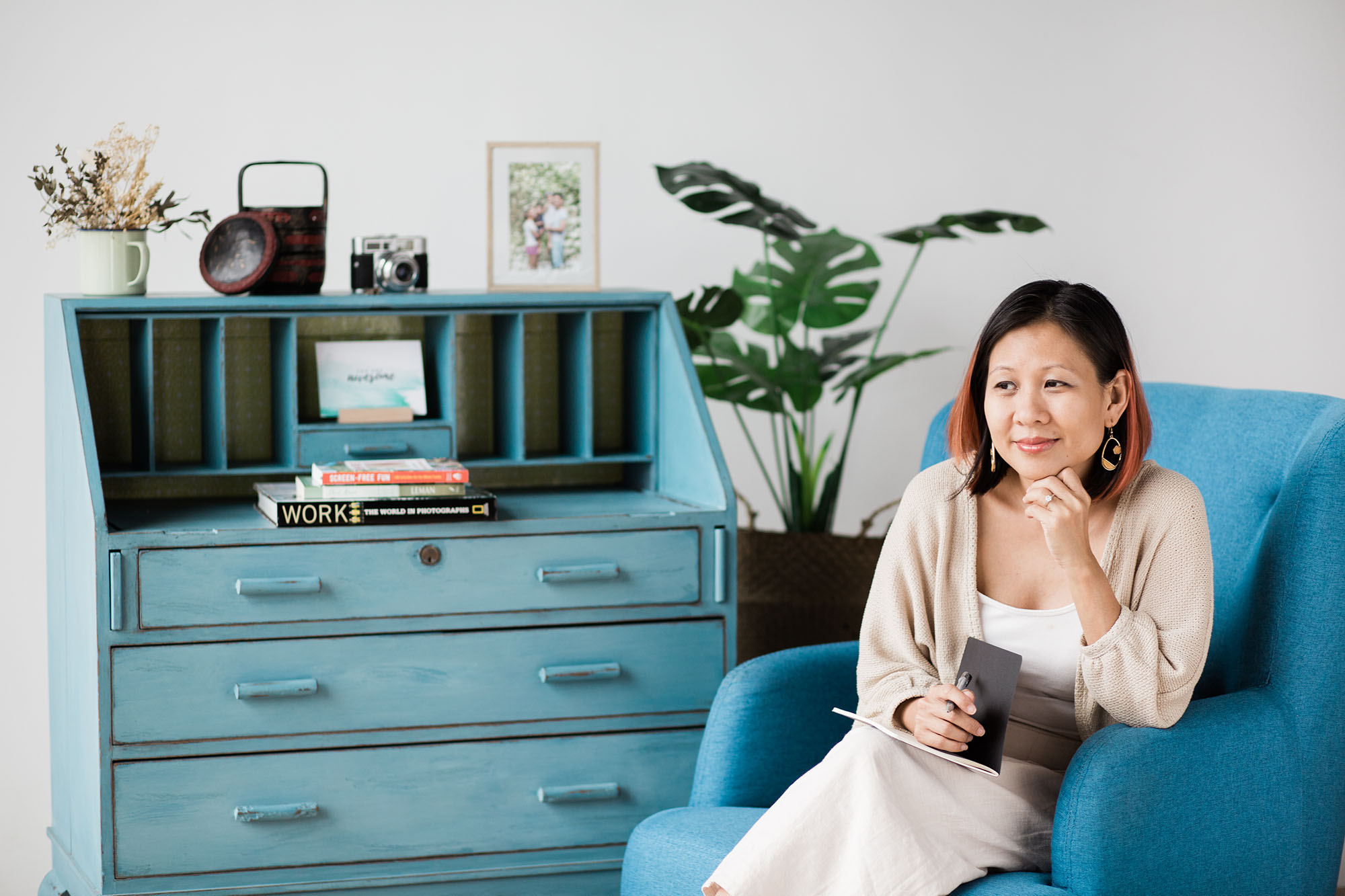Trust is earned, never demanded. Building trust between the coach and coachee is so crucial to moving the relationship forward. Without trust, we will merely scratch the surface of what the issues are, which will not be impactful in reaching the coachee’s end goals.
I’d like to think of myself as a rather trusting person. Perhaps it’s the way that I was brought up, to always see the good in people. I can imagine why some people might have issues with trusting others. If you had been deeply wounded by someone in the past whom you trusted, it can be quite hard to learn how to trust others. Similarly, I have heard of friends who have been wounded by their boyfriends in the past, which lead them to declare to the world that they will never trust men again.
I do not take this topic lightly. As a future coach, I want to create a safe and supportive environment so that the sharing can be free flowing. I hope to specialise in the areas of marriage and parenting, so it can be hard for a coachee to share intimate details if they do not trust the coach. It is then vital that I do not break trust with my coachee in the following manner:
- Disinterest – Cutting off the coachee mid sentence or using other inappropriate responses will give the wrong signal to the coachee. This could also include wrong body language like looking at your watch or phone while the coachee is talking. Not remembering key details of what was shared could also be detrimental to the relationship! I have to be especially mindful of this since I can be rather forgetful, so taking notes will help me.
- Disrespect – If you come across as judgemental, exhibit biases or exert higher authority by telling the coachee what to do, this will not build trust.
- Dishonesty – This is the fastest way to ruin the relationship

So what can I do to ensure that trust is earned?
- I need to seek to understand and respect the coachee within their context which includes their values, beliefs, identity, environment and experiences.
- I need to acknowledge the coachee’s insights and talents through the coaching process.
- I have to show support, empathy and concern for the coachee – which includes appropriate body language like nodding, right use of phrases and putting myself aside so that my coachee’s feelings and opinions take the highest priority. I think it is also important to know when to be silent to encourage the coachee to fully express himself or herself without interruption.
- Finally, I need to demonstrate openness and vulnerability by sharing appropriate personal stories with the right timing. This needs to be done with care so that I do not make the session about myself, but only share these stories if it gives insight into a situation.

This graphic shared by Coach Mel during our session truly summarizes the key areas we need to work on in order to cultivate the feeling of trust and safety with the coachee. I truly resonate with this topic because I believe in creating a safe space for honest conversations to happen. As Coach Mel says, we are merely there as coaches to hold the mirror up for the coachee to see herself so that she can find her agenda, intentions and clarity.
